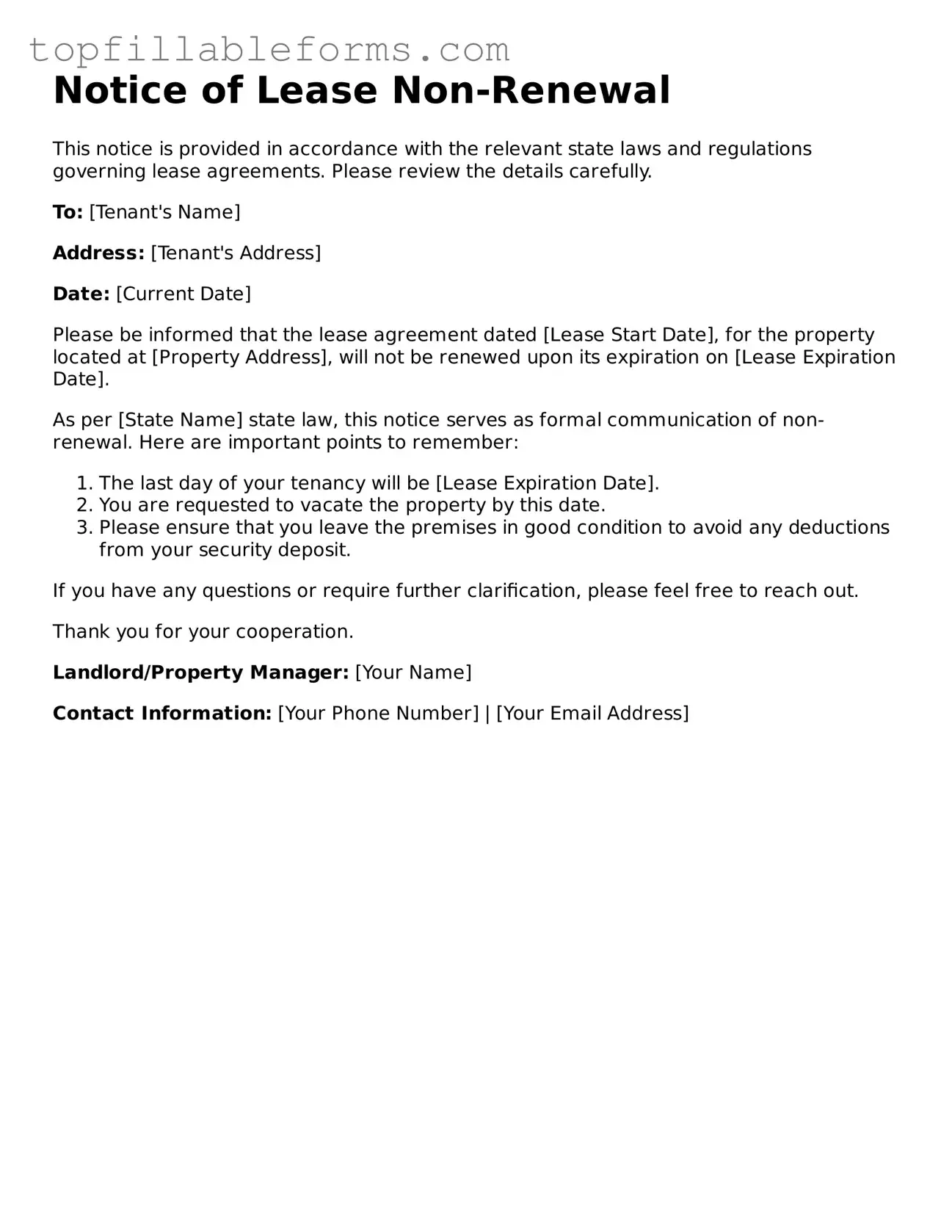Free Notice of Lease Non-Renewal Form
The Notice of Lease Non-Renewal form is a formal document that notifies tenants of a landlord's decision not to extend their lease agreement. This notice serves as an important communication tool, ensuring that both parties are aware of the lease's impending expiration. Understanding this form is crucial for tenants and landlords alike, as it outlines the necessary steps to take as the lease term concludes.
Open Notice of Lease Non-Renewal Editor Here

Free Notice of Lease Non-Renewal Form
Open Notice of Lease Non-Renewal Editor Here
Finish the form now and be done
Finish your Notice of Lease Non-Renewal online by editing, saving, and downloading fast.
Open Notice of Lease Non-Renewal Editor Here
or
▼ PDF File
